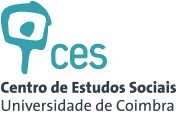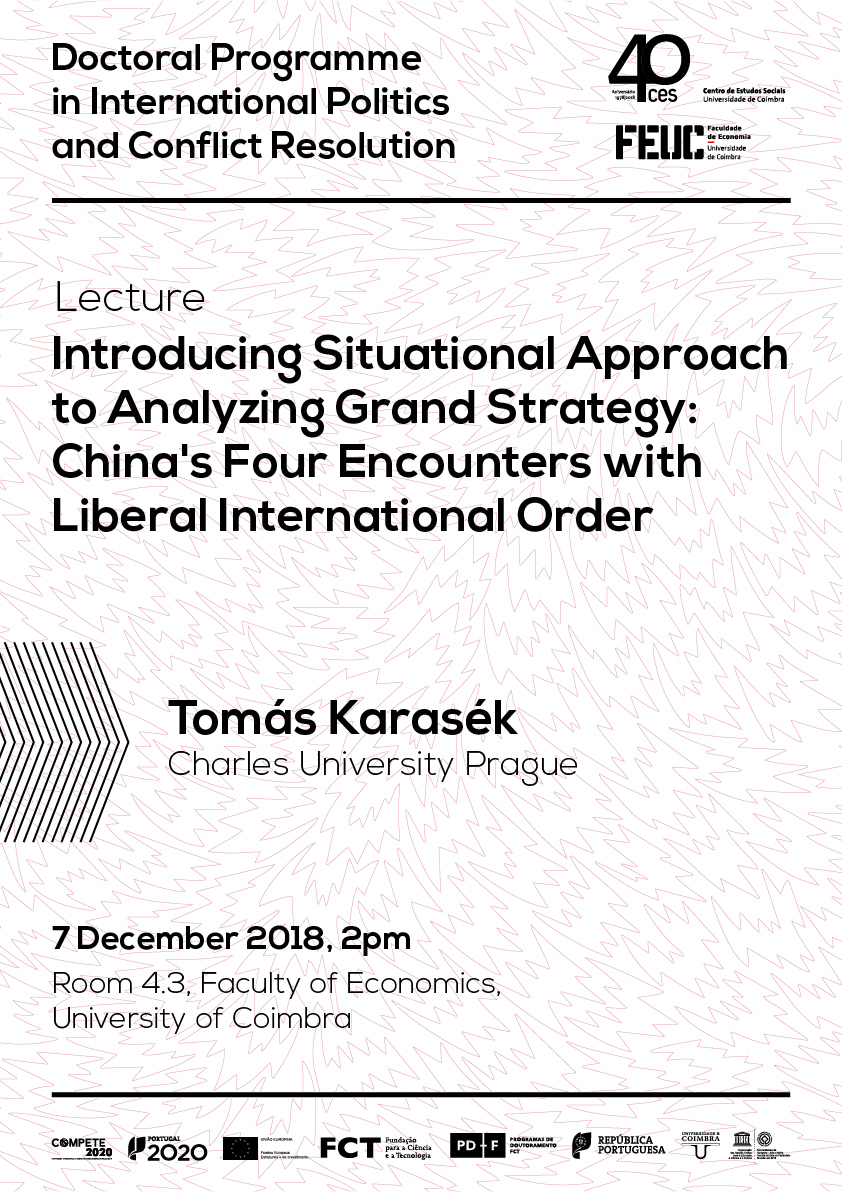Lecture
Introducing Situational Approach to Analyzing Grand Strategy: China's Four Encounters with Liberal International Order
Tomás Karasék (Charles University Prague)
7 de dezembro de 2018, 14h00
Room 4.3, Faculty of Economics, University of Coimbra
Abstract
China's grand strategy as a comprehensive framework for guiding and connecting the PRC’s foreign policies is formulated rather vaguely – currently in the form of ‘peaceful development’ and rhetorical variations thereof. But how does it relate to the existing, liberal international order? Does it endorse it, challenge it, or wish to reform it? To provide exact, verifiable answers, the lecture dissects both terms in question. Using the idea that "liberal international order – both its ideas and real-world political formations – is not embodied in a fixed set of principles or practices" (Ikenberry 2009: 71), it assumes that there are in fact a multitude of ‘international orders’ whose existence is essentially situational. Secondly, building on Barnett and Duvall's (2005) typology of power, it suggests that any situation offers China specific opportunities to establish, maintain or increase its influence. Thirdly, it assumes that grand strategy itself should be treated not as a ‘possession’ of a given actor, but rather as a result of a dynamic interplay between the actor’s policies and the environment towards which they are intended. Each of the four selected cases (Korean Peninsula, participation in peacekeeping, relations with Japan in the East China Sea, and the One Belt, One Road initiative) offers a different context for the analysis of situational interaction between China’s implementation of its grand strategy and the surrounding international order, with some counterintuitive and stimulating results concerning China’s strategic choices.
Short bio: Prof. Karasék is, since 2004, a lecturer at the Faculty’s Department of International Relations, teaching courses on the resolution of international conflicts, security and integration in Europe, international security and global terrorism. He earned his master degree and Ph.D. in International Relations at the Faculty of Social Sciences, Charles University in Prague (where he also graduated from the Law Faculty). He has been actively involved in research activities and has coordinated several grants on the topic of European security. In 2009 he spent his sabbatical in Shanghai where he taught at the Fudan University. From September 2009 to June 2010 he was a Fulbright scholar at the Saltzman Institute of War and Peace Studies, Columbia University in New York. In September 2010 – August 2013, he was the director of the Association for International Affairs (AMO) Research Center and then worked as Chief Analyst. Since May 2015, he has been a member of AMO Supervisory Board.
Activity within the Doctoral Programme in International Politics and Conflict Resolution [see programme of lectures]


